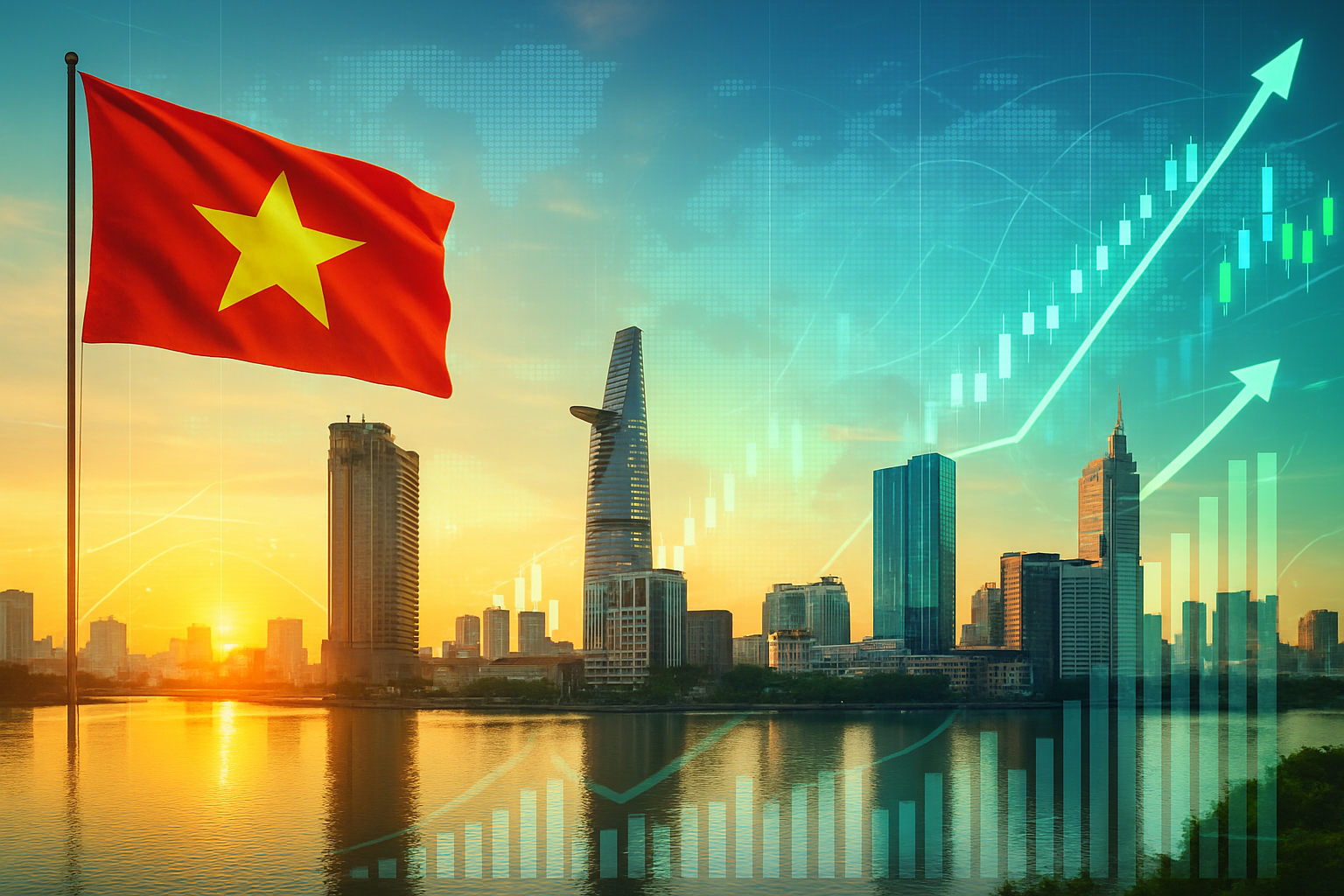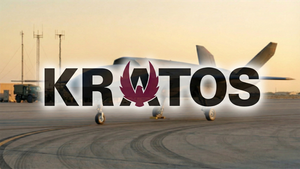
Hanoi, Vietnam – October 8, 2025 – After years of dedicated reforms and strategic policy shifts, Vietnam's capital market has reached a pivotal moment. Global index provider FTSE Russell officially announced today its reclassification of Vietnam's stock market from "Frontier" to "Secondary Emerging Market" status. This long-anticipated upgrade, effective September 21, 2026, is a testament to the nation's rapid and comprehensive efforts to modernize its financial infrastructure and enhance accessibility for international investors. While the journey includes an interim review in March 2026 to ensure continued progress in facilitating access for global brokers, the move is expected to unlock substantial foreign capital inflows, positioning Vietnam as a formidable player in the global financial landscape for decades to come.
This reclassification is more than a symbolic gesture; it is poised to trigger a significant influx of foreign investment, estimated to be between $3.4 billion and $10 billion in net foreign inflows initially. This capital injection is anticipated to boost market liquidity, improve valuations, and strengthen the overall structure and quality of Vietnam's burgeoning market. The upgrade also enhances Vietnam's credibility and appeal among global institutional investors, solidifying its position as a key market in Asia’s evolving investment narrative.
A Decade of Deliberate Reforms Culminating in Emerging Status
Vietnam's journey to emerging market status has been a concerted effort, with a remarkable acceleration in reforms over the past two years. FTSE Russell first placed Vietnam on its watchlist for potential reclassification in September 2018, highlighting key restrictions related to settlement cycles and foreign investor access. The government and regulatory bodies have since worked diligently, culminating in a series of critical reforms.
A significant breakthrough came in November 2024 with the removal of the pre-funding requirement for foreign institutional investors, a long-standing hurdle that tied up liquidity. This was followed by the launch of the new KRX trading system in May 2025, developed in partnership with the Korea Exchange, which replaced legacy infrastructure and enhanced market efficiency. Further legislative action, including Decree No. 245/2025/ND-CP effective September 11, 2025, clarified and expanded foreign ownership rules, preventing public companies from arbitrarily imposing lower foreign ownership limits (FOLs) than legally required. The State Securities Commission of Vietnam (SSC), under the guidance of the Ministry of Finance, has been a key player in driving these changes, alongside the State Bank of Vietnam (SBV) and the stock exchanges (Ho Chi Minh Stock Exchange - HOSE and Hanoi Stock Exchange - HNX).
The timeline of reforms accelerated significantly leading up to today's announcement. In September 2025, Minister of Finance Nguyen Van Thang actively engaged with FTSE Russell officials, reaffirming Vietnam's commitment. Early voting from major global funds in late September indicated strong support for the upgrade, with approximately 85% of 26 funds endorsing the reclassification. This robust reform agenda, coupled with Vietnam's strong economic growth, underscores the rapid and determined nature of its efforts to meet international classification criteria. In anticipation of the upgrade, Vietnam's benchmark VN-Index has already surged over 30% year-to-date, reflecting strong investor optimism, despite a period of foreign net outflows in August and September 2025 as some investors engaged in profit-taking.
Companies Poised for Growth and Adaptation
The FTSE Russell upgrade and associated reforms are set to create a more attractive investment environment, directly impacting various public companies and sectors. Increased foreign investment, improved liquidity, and enhanced transparency will largely benefit companies with strong fundamentals, good governance, and high liquidity.
The financial sector is widely anticipated to be a primary beneficiary. Major banks such as Vietcombank (HoSE: VCB), Bank for Investment and Development of Vietnam (HoSE: BID), Techcombank (HoSE: TCB), and Military Commercial Joint Stock Bank (HoSE: MBB) are expected to attract significant foreign capital, bolstering their valuations and lending capacity. Securities companies, including SSI Securities Corporation (HoSE: SSI) and the soon-to-be-listed VPS Securities (HoSE: VPS), are also poised for growth due to higher trading volumes and increased brokerage fees.
Beyond financials, large-cap, liquid companies across key sectors like real estate, consumer staples, and industrials are likely winners. These sectors collectively account for over 75% of the HoSE's total market capitalization. Technology giants like FPT Corporation (HoSE: FPT), known for its digital transformation services, are also well-positioned to attract increased tech investment. Companies that previously had company-imposed foreign ownership limits and now opt to raise them to legal ceilings could attract substantial new foreign investment, further boosting their valuations and access to capital.
Conversely, smaller, less liquid companies may not immediately attract the large-scale institutional foreign investment that targets highly liquid, large-cap stocks. Companies with poor transparency or those that lag in corporate governance will also struggle to gain international trust and investment. While company-imposed caps are eased, state-imposed FOLs in certain sensitive industries still exist, which could deter foreign investors seeking larger stakes. Companies without a clear strategy for engaging with international investors might miss out on the full benefits of this market transformation.
Wider Significance: A Regional and Global Ripple Effect
Vietnam's upgrade is a significant event that resonates beyond its borders, fitting into broader industry trends in emerging markets. It underscores a global shift towards economies demonstrating robust growth and a commitment to aligning with international financial standards. This move positions Vietnam among the ranks of other significant emerging markets, such as India and Indonesia, which have similarly undertaken reforms to attract global capital.
The influx of billions of dollars into Vietnam's markets could intensify competition for foreign direct investment (FDI) and portfolio inflows among its Southeast Asian neighbors like Thailand, Malaysia, and the Philippines. This success could also encourage other frontier markets in the region to accelerate their own capital market reforms. Furthermore, Vietnam's deepening integration into global financial markets complements its growing role in global supply chains, potentially altering regional trade dynamics and fostering greater economic interdependence.
For Vietnam, the FTSE Russell upgrade is not an endpoint but a critical stepping stone towards its ambitious "Stock Market Development Strategy to 2030." The ultimate goal is to achieve MSCI Emerging Market status by 2030, which commands an even larger asset base tracking its indices. This will necessitate continued reforms, particularly regarding access for global brokers, which FTSE Russell highlighted as an area needing attention and will be reviewed in March 2026. The development of a central counterparty clearing (CCP) system, expected to be operational by Q1 2027, is another crucial step. Historically, market upgrades by major index providers have often been transformative, leading to increased capital inflows, enhanced market visibility, and acting as a catalyst for further reforms, as seen in countries like India and Saudi Arabia.
What Comes Next: Navigating the Path to Full Emerging Status
Following today's announcement, Vietnam's capital market enters a new phase of evolution. In the short term, while substantial capital inflows are anticipated, some analysts caution that immediate inflows might be more gradual, and the market could experience a "buy the rumor, sell the news" scenario. However, the long-term outlook remains robust, with projections of up to $25 billion in foreign inflows by 2030 if MSCI also grants emerging market status.
Strategic pivots will be essential for both regulators and market participants. Regulators must continue to refine the legal framework, strengthen oversight, and, critically, expand access for global brokers ahead of the March 2026 interim review. The full implementation of the KRX trading system and the establishment of the CCP system are also paramount. For market participants, domestic securities companies must scale their capacity, especially for non-pre-funding arrangements, while listed companies need to further enhance corporate governance and transparency to meet heightened international investor expectations.
The path to an MSCI Emerging Market upgrade by 2030 remains the overarching goal. MSCI has more stringent criteria, and Vietnam currently meets 14 out of 18 requirements. Key remaining obstacles include further easing foreign ownership limits and ensuring the effective resolution of failed trades, which the CCP system aims to address. A positive scenario would see Vietnam successfully tackle these issues, potentially achieving an MSCI upgrade as early as 2027. Conversely, delays in implementing necessary reforms could push back the timeline, limiting the full extent of anticipated capital inflows. The March 2026 interim review will be a critical indicator of Vietnam's commitment and capability to address remaining concerns, ensuring the full reclassification proceeds as planned in September 2026.
A New Dawn for Vietnam's Financial Markets
Vietnam's conditional FTSE Russell upgrade marks a new dawn for its capital markets, signaling a profound shift towards greater global integration, increased investment, and enhanced market quality. The comprehensive and rapid reforms undertaken by the Vietnamese government have laid a solid foundation for national financial autonomy and resilience, attracting significant international attention.
The long-term dividends of these reforms are expected to be substantial. Increased liquidity, lower capital costs for businesses, greater investor confidence, and a more diverse funding landscape will support Vietnam's ambitious economic growth targets and its transition towards higher value-added industries. While near-term challenges, such as ensuring seamless broker access and managing potential market volatility, persist, the government's unwavering commitment to market development suggests a high likelihood of continued progress.
Investors should closely watch the developments leading up to the March 2026 interim review by FTSE Russell, as well as Vietnam's ongoing efforts to meet the more stringent criteria for an MSCI Emerging Market upgrade. The market's ability to absorb the anticipated capital inflows and the continued enhancement of corporate governance and transparency will be key indicators of sustained success. For those who recognize Vietnam's strong economic fundamentals, proactive reform agenda, and youthful demographics, the nation stands as a compelling investment destination poised to deliver significant long-term returns.





